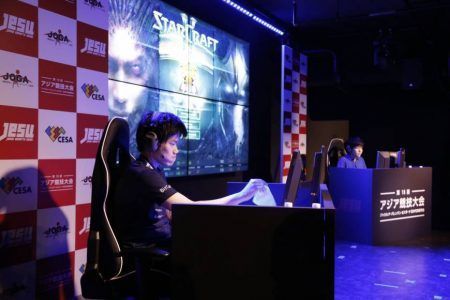A competitive gaming club in a Japanese high school has stirred controversy surrounding esports in the country after educators opposed using public funds for esports competitions and activities.
While such an incident seems to be a minor issue at best, it does not bode well for Japanese esports, given that the country has really lagged behind its global peers in the industry for years.
According to a report by the Japan Times, Takahiro Inose, principal of Oarai High School in Japan’s Ibaraki Prefecture, proposed the establishment of an extracurricular esports club, in preparation for an interprefectural esports competition, back in January.
The proposal was met with opposition from the school’s teachers, with the principal also receiving criticism for it as well.
“I feel uncomfortable with doing gaming as part of school education. I’m strongly opposed,” one teacher said of the principal’s proposal.
The opposition to the proposal points towards a general reluctance to embrace esports in Japan, which is vastly different from the reception that competitive gaming had in countries such as the U.S.A., where ESPN just launched a collegiate esports league that would award scholarships to aspiring esports student-athletes.
Inose is among a minority in Japan that has taken a positive stance towards esports, much like the rest of the world.
“After-school club activities are one of the catalysts for students to come to school. It’s good to see students enjoy themselves,” Inose said.
His proposed esports club came ahead of an interprefectural esports competition that will be part of the Japan Games national sports event, which Ibaraki Prefecture is due to host later this year.
In an effort to rally support for his proposal, Inose even held an esports trial session for students and teachers last month.
Meanwhile, the principal of another Japanese high school that successfully launched an esports club last year gave a positive assessment of its effects.
“[Esports activities] led to increased communication among students, especially during competitions,” said Satoru Kaneko, principal of Johoku Tsubasa High School in Aichi Prefecture.
Even so, both reluctance and opposition against esports in Japan remain significant.
Despite Japan’s rich history in gaming, the country has largely left behind by the rest of the world in advancing in esports. Entities such as the Japanese Esports Union and major Japanese video game publishers have been busy trying to get their country to catch up. Konami has even begun construction of an esports center in Tokyo to both serve as a venue for esports competitions and foster local talent and events.
It remains to be seen whether Japan will end up fully embracing esports, but the above incident suggests that the country’s efforts in competitive gaming will be an uphill battle for the foreseeable future.

